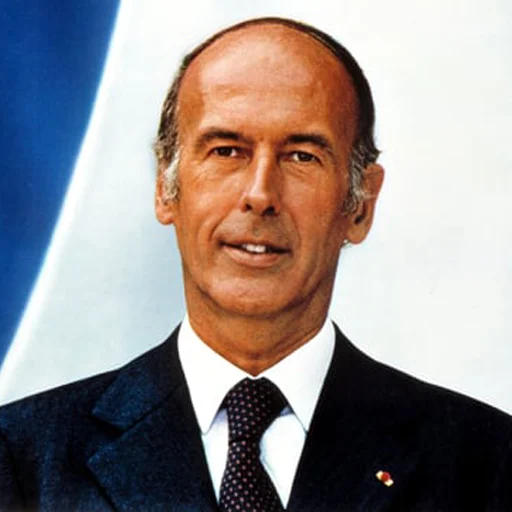Valéry Giscard d’Estaing took part in the liberation of Paris at the age of 18 in August 1944. He refused to return to secondary school and joined the 2nd Dragoon Regiment under General Jean de Lattre de Tassigny. After eight months of campaigning and twenty-eight days in combat, he was awarded the “Croix de Guerre”. After the end of the Second World War, he returned to his studies.
A graduate of the Ecole Polytechnique, alumnus of the “Ecole Nationale d’Administration”, and then finance inspector, he became deputy director of the cabinet of Edgar Faure, President of the Council, before being elected member of parliament for Puy-de-Dôme the following year. Under President General de Gaulle, he was successively Junior Minister of Finance and Minister of Finance and Economic Affairs.
In 1974, as a candidate in the presidential election, he won against François Mitterrand, the representative of the Socialist Party, in a second round marked by a record turnout in French history. At 48, he became the youngest President of the Republic since 1895. In favour of an “advanced liberal society”, he accomplished the lowering of the age of majority, the decriminalisation of voluntary interruption of pregnancy, divorce by mutual consent, the extension of the right of referral to the Constitutional Council, and the end of the supervision of public television. His foreign policy was characterised by the strengthening of European integration. While he managed to develop the high-speed train (TGV) project and relaunch the nuclear industry, he was faced with economic difficulties as the era of the 30 years of post-war economic growth came to an end. Although he ran for a second term, he had to give way to François Mitterrand.
He became president of the “Union pour la Démocratie Française” (UDF), founded during his seven-year term, and was one of the main leaders of the opposition to the Socialist Party. A fervent supporter of the European Union, he was first a Member of the European Parliament, and then Chairman of the “Convention on the Future of Europe”. From 2004, he sat on the French Constitutional Council, of which was an ex officio member as a former President of the Republic.
The author of several essays and novels, he was elected to the Académie française in 2003, taking the seat left by Léopold Sédar Senghor.
